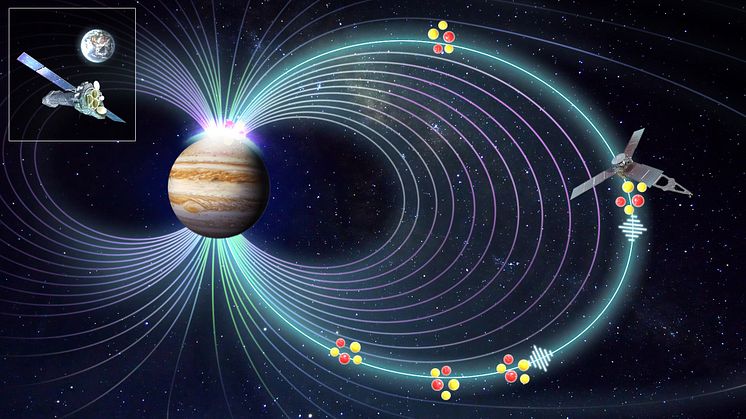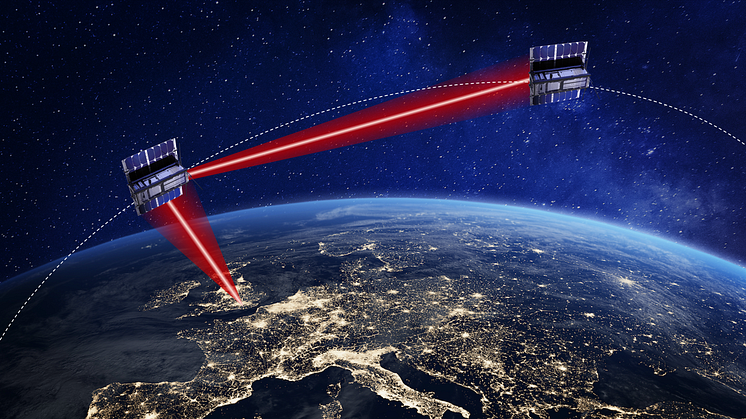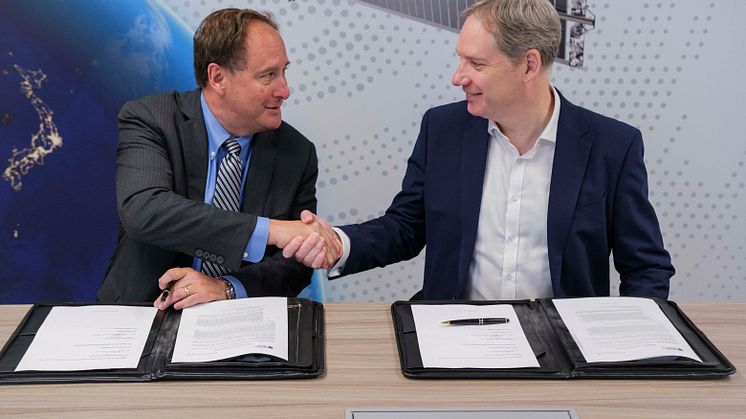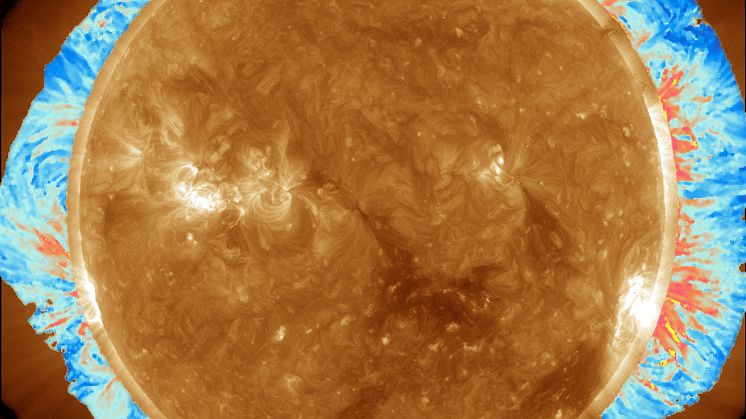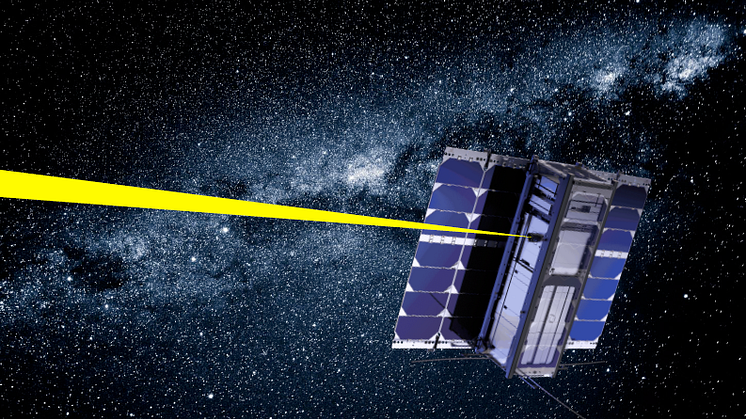
Press release -
North East satellite partnership expected to boost UK’s share of global space market
Northumbria University has been awarded more than £360,000 of funding from the UK Space Agency to develop the world’s first commercially available laser-based satellite communication system.
Academics from the University will work with County Durham company ISOCOM Limited to design, build and test small satellites, known as ‘CubeSats’, which will orbit the earth, transmitting data 100 times faster than currently possible.
Their aim is to develop an ‘off the shelf’ product for telecoms providers, as well as global companies such as SpaceX, Facebook and Google, which could deliver Internet of Things (IoT) technology, as well as remote sensing, environmental monitoring and disaster prevention.
It is one of only five University-led projects from across the UK to be awarded a share of over £8 million of funding through the UK Space Agency’s National Space Innovation Programme – the first UK fund dedicated to supporting the space sector’s development of innovations.
Entitled Laser Optical Communications for CubeSats, the project is expected to help achieve the government’s ambition to increase the UK’s share of the global space market to 10% by 2030 – estimated to be worth around £400 billion.
It will also position the UK at the forefront of optical laser communication systems and technology, develop national capabilities, and allow the UK to take a significant share of this emerging market.
The project is being led by solar physicist Dr Eamon Scullion of Northumbria University’s Department of Mathematics, Physics and Electrical Engineering.
Speaking about the project he said: “We are establishing a new paradigm for space-based communications, with a marked increase in data transmission rates, transforming CubeSats into critical space assets.
“This is all about designing a new system capable of firing laser beams between satellites that are not much bigger than a shoe box, many thousands of kilometres apart and moving at many thousands of kilometres per hour around the world – it does not get much cooler than that.”
The CubeSats will operate in pairs in a low Earth orbit – around 600 miles (1,000 km) above the surface of the Earth.
They will be capable of transmitting data at a rate of one gigabit per second (1 gbps) using free-space optical communication technology (FSO).
FSO technology uses light to transmit data and is significantly faster than the low-speed radio frequency currently used by CubeSats, which has a maximum speed of 1-10 megabits per second (mbps).
Northumbria University’s Professor Zabih Ghassemlooy heads up Northumbria’s Optical Communications Research Group and is a world leading expert on laser communications and optical wireless communications. He said: “This is an exciting project allowing us to demonstrate laser-based wireless communications between CubeSats.”
Professor Ghassemlooy, along with Dr Scullion, Dr Robert Wicks and Dr Mojtaba Mansour Abadi, make up the Northumbria University research team involved in the project.
They will work alongside Peterlee-based ISOCOM Limited, which specialises in the design, manufacture, and testing of high-quality optoelectronic and microelectronic components for space and aerospace including detectors, emitters, high power VCSEL lasers and optical switching products.
ISOCOM CEO and Managing Director Thomas Bayat said: “We are delighted to be collaborating with Northumbria University on this UKSA laser technology project.”
The project will open a new window of opportunity for developing UK small and medium size businesses in the growing space sector and enable a step-change in the current approach to communications constellations and space science missions.
It will also play a key role in meeting the global demand for high-speed internet services and establishing optical communications as a part of the space industry in the UK.
Science Minister Amanda Solloway said: “We want the UK to be a world leader in space technology which is why we are supporting our most ambitious innovators who are developing first of a kind technologies to help solve some of our greatest challenges.
“From slashing carbon emissions to protecting the UK’s critical services from harmful cyber-attacks, today’s funding will unshackle our most entrepreneurial space scientists so that they can transfer their revolutionary ideas into world class products and services, while helping to boost the UK economy.”
Dr Graham Turnock, Chief Executive of the UK Space Agency, said: “Space technologies have become deeply embedded in, and critical to, almost every aspect of our daily lives. With rapid technological innovation, space offers a broad and growing range of opportunities to support economic activity and protect the environment.
“From the satellites connecting our calls to the ones that tell us when to expect rain when we step outside, space technologies are fundamental to our day-to-day lives.
“Our space sector is constantly advancing and welcoming new ideas, and through this funding we are championing the best of this British innovation.”
The UK space sector is a huge economic success story, growing by over 60% since 2010. The industry already supports £300 billion of UK economic activity through the use of satellite services and is expected to grow further as this new Government support unlocks commercial opportunities.
The UK also remains a leading member of the European Space Agency, which is independent of the EU. ESA membership allows the UK to cooperate in world-leading science on a global scale, enabling UK scientists and researchers access to a range of international R&D programmes.
Click here to view a video of how the CubeSats will look and work once in orbit
Click here to hear Dr Eamon Scullion discuss the CubeSat project and explain what a difference funding from the UK Space Agency’s National Space Innovation Programme will make.
Topics
Categories
Northumbria is a research-rich, business-focused, professional university with a global reputation for academic excellence. Find out more about us at www.northumbria.ac.uk --- Please contact our Media and Communications team at media.communications@northumbria.ac.uk with any media enquiries or interview requests ---










